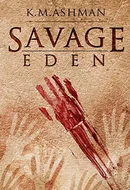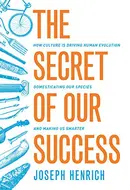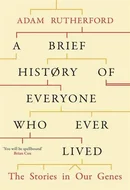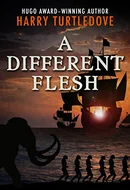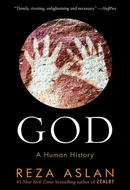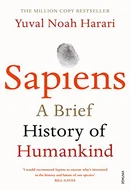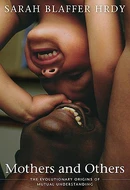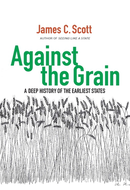Books matching: human species evolution
17 result(s)
Readers also searched for:
- #1
'Last and First Men' by Olaf Stapledon is a speculative science fiction novel that spans over two billion years of human evolution and history. The book presents a series of future scenarios where different human species rise, evolve, and eventually face extinction due to various internal and external challenges. Stapledon's writing style is characterized by a lack of traditional plot and character development, focusing instead on providing a chronological overview of the future history of mankind and its descendants. The narrative is structured as a historical account, with a focus on exploring philosophical and existential themes through the lens of speculative evolution.
Long before the human spirit awoke to clear cognizance of the world and itself, it sometimes stirred in its sleep, opened bewildered eyes, and slept again. One of these moments of precocious experienc... - #2
'Savage Eden' by K.M. Ashman is a historical fiction novel set in prehistoric times, depicting the coexistence and evolution of different human species. The plot revolves around two races that must join forces to survive and defeat a common enemy, showcasing their struggles, conflicts, and alliances. The author skillfully narrates the story, blending elements of adventure, survival, and cultural evolution, all within a span of roughly one year, providing a captivating and educational insight into the primitive cultures of early humans.
The writing style of 'Savage Eden' is praised for its immersive quality, with readers expressing how the book transports them back in time and makes them feel present in the story. The author's ability to create a vivid picture of the prehistoric world, along with the engaging narrative filled with action, suspense, and thought-provoking themes, keeps readers engrossed from start to finish, making it a must-read for fans of historical fiction and adventure genres.
Golau cursed quietly as his freezing fingers crept up the haft of his hunting spear. The dung smeared pelt covering his body had long ago lost its warmth, but the many bone chilling hours he had lain ... - #3
'Predator: Incursion' in the series 'The Rage War' by Tim Lebbon follows a storyline that jumps back and forth among four main characters, exploring the theme of enemies uniting against a greater threat. Readers find themselves intrigued by the backstories and the suspenseful narrative that leads to a surprising conclusion, setting the stage for the next installment. However, some readers express disappointment in the lack of focus on the Predators, as the involvement of these iconic characters is limited and delayed in the plot.
The author, Tim Lebbon, presents a dark and interesting tale that delves into the interactions between humans, Predators, and Aliens, with a touch of suspense and mystery surrounding a sinister enemy. Despite some shortcomings in character development and pacing, the book offers an engaging read for those who enjoy the Predator and Alien universe, setting the stage for a thrilling series that keeps readers hooked.
- #4
'The Secret of Our Success: How Culture Is Driving Human Evolution, Domesticating Our Species, and Making Us Smarter' by Joseph Henrich presents a compelling argument that cultural evolution has played a crucial role in shaping human intelligence and success. Henrich explores how cumulative cultural evolution differentiates humans from other species, highlighting examples of cultural adaptations such as technological advancements and social norms that have influenced human evolution over millennia. The writing style of the book blends scientific evidence with anecdotes from various cultures, providing a solid framework for understanding the impact of culture on human genetic evolution.
'A Brief History of Everyone Who Ever Lived' by Adam Rutherford is a comprehensive and entertaining exploration of human genetics and DNA. The book delves into the history of human beings, from our origins to modern times, using DNA as a source material to unravel the complexities of our genetic makeup. Rutherford skillfully debunks misconceptions, explains scientific concepts, and provides insights into human evolution, genetic testing, and the implications of our DNA on our identity and ancestry. The writing style is engaging, informative, and at times humorous, making complex genetic topics accessible to a wide audience.
Vonnegut was half right. There is definitely no beginning, and if there is an end, it’s not in sight. We are always in the middle, and we are all missing links. Just like there was no absolute point w...- #6
'A Different Flesh' by Harry Turtledove is a collection of loosely connected short stories set in an alternate history where Homo erectus, referred to as sims, inhabit North America instead of Native Americans. The book explores the evolving relationship between sims and humans over four centuries, touching on themes of slavery, ethical considerations, and historical interactions. Turtledove's writing style is described as challenging, entertaining, informative, and fast-moving, offering a mix of cryptozoology, science fiction, alternative history, and historical fiction that prompts readers to contemplate human nature and societal dynamics.
Europeans found the New World a very different land from the one they had left. No people came down to the seashore to greet their ships. Before the arrival of European settlers, there were no people ... - #7
'God: A Human History' by Reza Aslan delves into the evolution of human beliefs in gods and God from prehistory to present times. Aslan explores the transition from polytheism to monotheism, touching upon the origins of religion, the significance of events like the great flood, and the human tendency to anthropomorphize the divine. The author's writing style is described as engaging and approachable, making complex topics like the history of religion accessible to readers.
IN THE BEGINNING was the void. Darkness. Chaos. A vast sea of emptiness without shape or substance. No sky, no earth, no waters parted. No gods made manifest nor names pronounced. No fates decreed unt... 'Sapiens: A Brief History of Humankind' by Yuval Noah Harari is a thought-provoking exploration of the history of humans, spanning from our early caveman days to modern times. The author delves into the three major revolutions of cognitive, agricultural, and scientific advancements, shedding light on human myths and societal constructs like capitalism and free market. Through insightful discussions, the book examines the evolution of mankind, from the domestication of fire to the mastery of our surroundings, while also speculating on the future impact of humans on life on earth.
About 300,000 years after their appearance, matter and energy started to coalesce into complex structures, called atoms, which then combined into molecules. The story of atoms, molecules and their int...'Mothers and Others - The Evolutionary Origins of Mutual Understanding' by Sarah Blaffer Hrdy explores the unique aspects of human parenting and cooperation through the lens of evolutionary psychology and sociobiology. Hrdy challenges traditional assumptions about parenting roles and family structures, highlighting the importance of cooperative breeding and the roles of various caregivers in raising children. The book delves into the origins of human nature, contrasting human behavior with that of other great apes and exploring the impact of historical and cultural changes on parenting practices.
Hrdy's writing style combines scientific rigor with engaging storytelling, drawing from anthropology, sociology, and comparative ethnography to present a compelling argument about the evolution of human behavior. The book not only provides a thought-provoking analysis of human parenting practices but also offers a broader perspective on the development of social structures and cultural norms within human societies.
Each year 1.6 billion passengers fly to destinations around the world. Patiently we line up to be checked and patted down by someone we’ve never seen before. We file on board an aluminum cylinder and ...'Against the Grain: A Deep History of the Earliest States' by James C. Scott challenges the traditional narrative of the advancement of civilization by delving into the oppressive nature of early states. Scott explores how the transition from hunter-gatherer societies to settled agricultural communities led to increased exploitation, vulnerability, and societal collapse. The book provides a detailed analysis of the impact of domestication, taxation, trade networks, and ecological consequences on the development of early states, offering a thought-provoking perspective on the origins of human civilization.
WHAT fire meant for hominids and ultimately for the rest of the natural world is presaged vividly by a cave excavation in South Africa.1 At the deepest and therefore oldest strata, there are no carbon...

